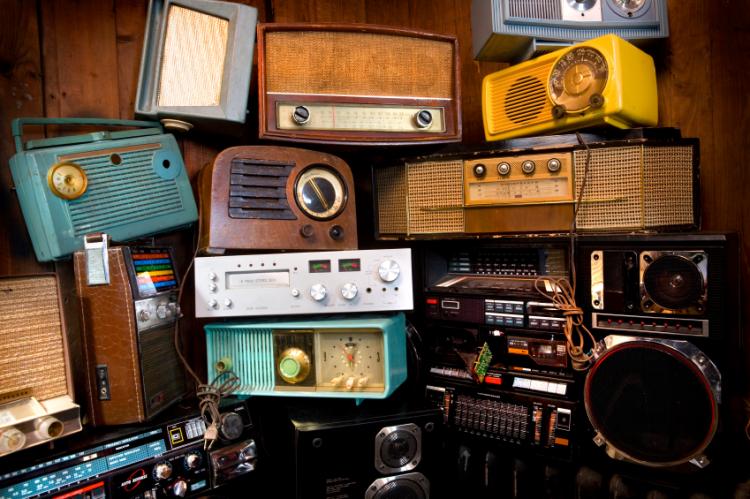The crackle of a radio, the soothing voice of a familiar host, and the flow of information, music, and entertainment – for decades, radio has been a constant companion in countless lives. But in an age of social media and ever-evolving technology, can radio still maintain its relevance and impact?
Ukamaka Richard Bassey, a on-air personality at an independent radio station in Calabar, emphasizes the unique power of radio: “I feel close to the people. I can interact and engage with them, feeling the pulse of the community in a way no other medium can.”
Radio bridges the geographical gap, especially reaching rural areas where internet access might be limited. It provides a platform for diverse voices to be heard, fostering a sense of connection and shared experience.
Celebrating a Legacy
World Radio Day, observed annually on February 13th, serves as a reminder of radio’s global reach and influence. It acknowledges its role in fostering international cooperation, promoting freedom of expression, and providing access to vital information.
Ukamaka says the day is crucial for the impacts it has created in the lives of communities and people, as a “world without radio will be unliveable.”
Tracing its roots back to the 1800s with the discovery of electromagnetic waves, radio has come a long way. Pioneering figures like Guglielmo Marconi and Reginald A. Fessenden played crucial roles in developing the technology, paving the way for its widespread use.
Individuals like Happiness Ifiok, a radio listener for over five decades, attest to the lasting impact of radio. “It’s free, accessible, and educational,” she shares, highlighting its ability to inform, entertain, and even improve vocabulary, as she experienced in her childhood.
“I grew up listening to radio and it has impacted me positively. My father would tune in to BBC Africa and my sister would tune in to AKBC from morning till evening; there were lots of educational programmes. It improved my vocabulary as a child,” Happiness recounted.
Godwin Otang adds another layer of appreciation: “Radio is a pet, a friend, a companion.” He values its user-friendly nature, engagement, and ability to keep him informed, educated, and entertained. Sylvia Akpan even credits radio with saving her from falling prey to misinformation surrounding the Ebola outbreak.
“When Ebola rumours plagued the country through social media, so many people suggested that bathing in salt water was the best antidote that would prevent an individual from contracting Ebola.
“But with the aid of a radio programme, since I was concerned about the efficacy of the antidote. I came to realise that salt water does not in any way prevent anyone from contracting Ebola,” Akpan shared.
Facing the Challenges:
However, radio does face challenges in the modern world. The rise of social media has undoubtedly diverted some attention, and issues like coverage limitations, weather conditions, and ownership structures can pose hurdles.
Despite these challenges, Happiness Ifiok emphasizes that “social media won’t replace radio and traditional media.” Ukamaka Bassey echoes this sentiment, highlighting radio’s role in combatting misinformation and adapting to the digital landscape.
“The issue of misinformation is one of the challenges because most times you see people come on radio and they are trying to talk about the misinformation they see or read on social media. Radio is becoming digital and it’s becoming a challenge if the owners of the radio are evolving with the times we are in,” she said.
A Voice for the Community
Furthermore, radio plays a crucial role in information gathering through call-in segments and discussions. By giving a voice to the community, it acts as a bridge between the public and those in positions of power, facilitating dialogue and addressing concerns.
In an ever-changing world, radio continues to hold its own as a powerful tool for communication, information dissemination, and entertainment. It connects communities, amplifies diverse voices, and adapts to new challenges, proving its enduring legacy in the face of evolving technologies.
Radio has been a staple in many lives for decades, offering connection, information, music, and entertainment. Despite the advances in social media and technology, radio maintains its relevance, especially highlighted by personalities like Ukamaka Richard Bassey. Radio uniquely engages and interacts with communities, particularly in rural areas with limited internet access, fostering a sense of connection through diverse voices.
Celebrating Radio’s Legacy
World Radio Day on February 13th underscores radio’s global influence in promoting freedom of expression and international cooperation. The medium has a rich history, from its early days with pioneers like Guglielmo Marconi and Reginald A. Fessenden, to its ongoing impact as recounted by long-time listeners like Happiness Ifiok and Godwin Otang.
Radio’s role in education and public awareness is significant, with examples like Sylvia Akpan avoiding misinformation during the Ebola outbreak thanks to radio broadcasts.
Challenges and Adaptation
While radio faces challenges such as competition from social media and technological shifts, it continues to combat misinformation and evolve with digital advancements. Personalities like Ukamaka Bassey stress the importance of adapting to maintain relevance.
A Community Voice
Radio remains a vital communication tool, providing a platform for community interaction, dialogue, and addressing public concerns. It proves resilient in connecting communities and amplifying voices, showcasing its enduring legacy amid technological changes.






